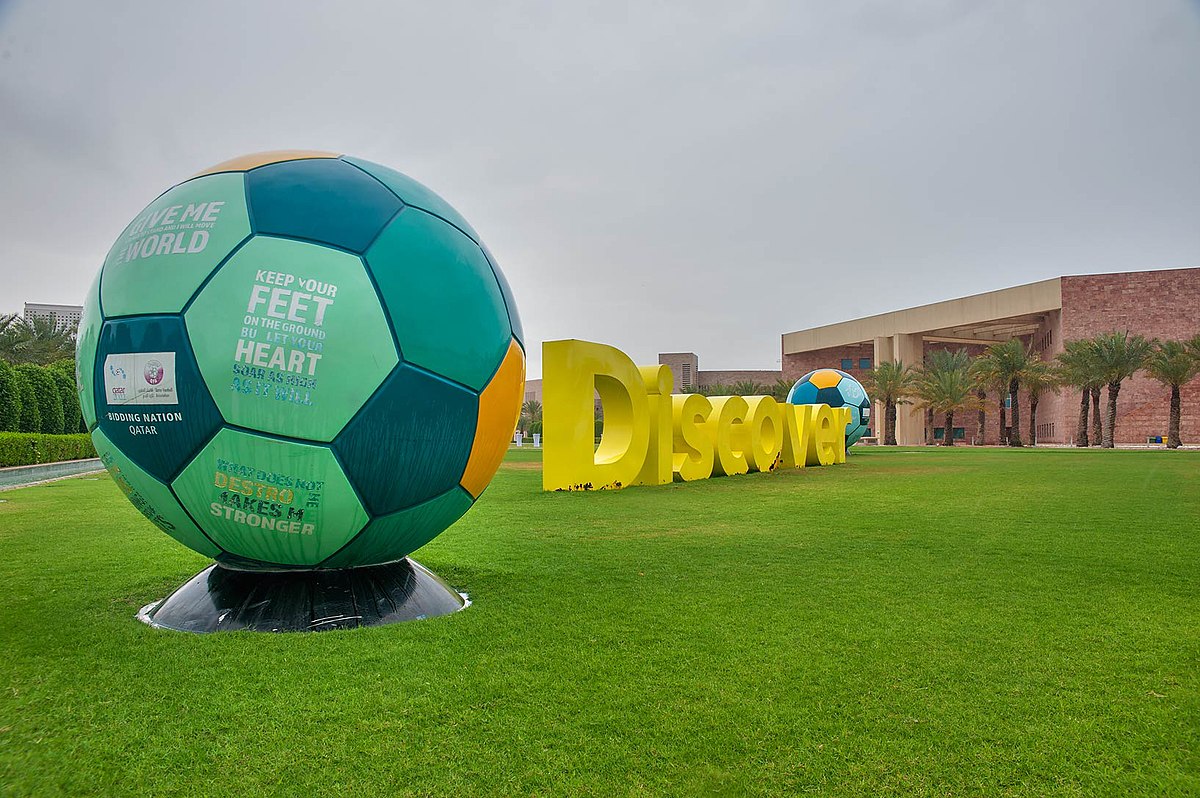Qatar 2022: football’s grandest bribery scandal continues
There has always been an air of suspicion surrounding FIFA’s decision to award the 2022 World Cup to Qatar. But now, that suspicion has turned into concrete allegation – the FBI has accused three senior FIFA officials of receiving bribes to vote in favour of the Gulf state, and to award the 2018 competition to Russia. This indictment, the latest in a long-running US prosecution of football corruption, has once again forced attention onto this most controversial of decisions.
The story begins in 2010, when countries were submitting their bids to host the 2018 and 2022 World Cups. It was unlikely that Russia would win, but the announcement that Qatar would host the 2022 competition was immediately called corrupt. Critics of the decision cited Qatar’s size (it’s roughly the scale of Yorkshire) and horrendous human rights record as two factors rendering it completely unsuitable to host football’s most prestigious tournament. After a major diplomatic row, it will also be impossible for fans to stay in neighbouring countries, such as the United Arab Emirates, as air travel between states has been cut off.
It has long been alleged that bribes were the reason that Qatar’s bid was successful – the US Department of Justice (DoJ) agreed with this assessment and, after a dramatic raid on a Zurich hotel near to FIFA’s headquarters in 2015, it announced that it was investigating the matter. Disgraced FIFA president Sepp Blatter eventually stood down in the scandal’s wake, banned from football in December of that year for breaches of FIFA’s ethics code. 42 people were indicted on corruption charges, 26 of whom plead guilty.
A third member of FIFA’s executive committee, then-president of Argentina’s FA Julio Grondona, is also accused
And now, the new charges. The DoJ has accused both the late Nicolas Leoz (the then-president of CONMEBOL, South American football’s governing body) and Ricardo Teixeira (an ex-Brazil federation president) of taking money “in exchange for their votes in favour of Qatar to host the 2022 World Cup”. A third member of FIFA’s executive committee, then-president of Argentina’s FA Julio Grondona, is also accused, but his 2014 death means that he cannot be charged.
Former FIFA vice-president Jack Warner and Guatemala football chief Rafael Salguero were reportedly bribed to vote for Russia in 2018, with Warner allegedly receiving £4 million through offshore shell companies.
A statement by the organisers of the 2022 World Cup denied the allegations. It said: “Despite many years of false claims, evidence has never been produced to demonstrate that Qatar won the rights to host the FIFA World Cup 2022 unethically or by means that contravened strict bidding rules. The Supreme Committee maintains that it strictly adhered to all rules and regulations for the 2018/2022 FIFA World Cup bidding process and any claim to the contrary is baseless and will be fiercely contested.” Russia, for its part, also denied that any bribery had taken place.
FBI assistant director-in-charge William Sweeney said: “The profiteering and bribery in soccer has been deep-seated and known for decades. The FBI are investigating the illicit handshakes and backroom deals hidden in the infrastructure of soccer events, venues and marketing contracts. The first charges date back to 2015. This should illustrate to everyone still hoping to score millions corruptly – we’re going to find you.”
There will be further pressure on FIFA to reopen their inquiries into Qatar, but don’t expect any new results
A statement from FIFA said that it “supports all investigations into alleged acts of criminal wrongdoing regarding either domestic or international football competitions and will continue to provide full cooperation to law enforcement officials investigating such matters”. There will be further pressure on FIFA to reopen their inquiries into Qatar, but don’t expect any new results. A 2014 FIFA-commissioned investigation into the bidding process effectively cleared Qatar and Russia, with officials claiming that every computer and server used in the process had been destroyed.
It would also be foolhardy to expect the competition to be held anywhere other than Qatar. Anti-corruption expert Sylvia Schenk, the head of Transparency International Germany’s sport working group, believes there isn’t enough to the FBI’s corruption claims to realistically move the World Cup. If anything is likely to threaten the prestige Qatar can gain from the World Cup, it’s likely to be coronavirus – the country has come under fire for issuing pandemic instructions that aren’t sufficiently dealing with the issue.
It has been said that Qatar doesn’t overly care about the workers being injured or killed during the construction of its stadiums, but the severe COVID-19 restrictions could delay those constructions, and that’s far more of an issue.
As much as Qatar wants the 2022 World Cup to mark its global status, it’s impossible to ignore the bribery allegations surrounding the competition. With the FBI breathing down its neck, football will be under more pressure than ever to clean up its act – if the 2022 World Cup isn’t going to be cancelled, perhaps the best-case scenario will be to get it over with and move onto the 2026 US, Mexico and Canada tournament.

Comments